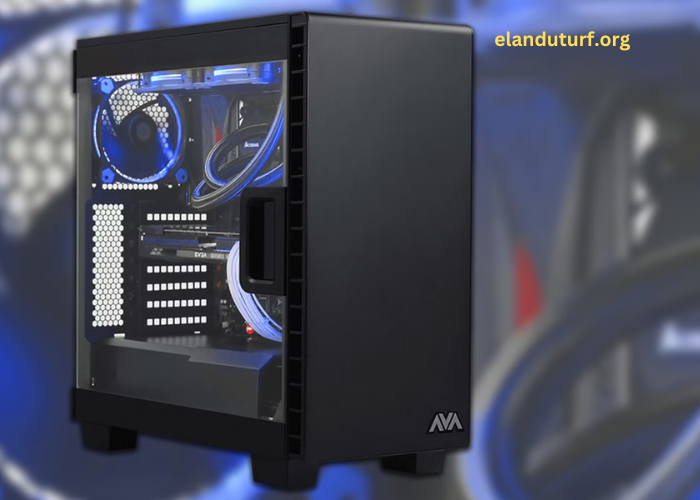Let’s face it: every gamer has been there. You’ve invested in a high-end gaming PC, but somehow, your favorite games still stutter, lag, and fail to run as smoothly as you’d hoped. Whether it’s FPS drops, texture pop-ins, or poor loading times, these issues can ruin the immersive experience gaming is supposed to offer.
You’ve tried everything—lowering the settings, tweaking the game files, praying for an update—but nothing seems to work. If you’re frustrated by your PC’s performance, it might be time for an upgrade. But before you throw in the towel and start saving for an entirely new rig, know this: upgrading specific parts of your system can make a world of difference.
In this blog, we’ll walk you through a comprehensive guide on how to upgrade your gaming PC to get the best performance. Whether you’re a competitive esports player, a casual gamer, or someone who just loves playing poker games and slot games online, these tips will help you unlock your PC’s true potential.
1. Assessing Your Current Setup: What’s Holding You Back?
Before diving into upgrades, it’s important to know exactly what’s limiting your PC’s performance. Do you notice lag during intense gameplay or long loading times when launching a game? Or maybe your frame rates drop when you start running complex graphics.
2. The CPU: The Brain of Your Gaming Rig
The CPU, or processor, is essentially the heart of your gaming PC. If you have an older or slower processor, upgrading to a faster one can provide a significant boost.
For gamers who play fast-paced shooters, strategy games, or poker games that require quick thinking and multi-tasking, having a high-end CPU ensures a smooth experience. But don’t jump to conclusions—upgrading your CPU involves careful consideration of your motherboard compatibility and overall system balance.
3. The GPU: Your Graphics Powerhouse
Upgrading your GPU is often the most noticeable change when it comes to boosting performance. A stronger graphics card will allow you to run games at higher resolutions, smoother frame rates, and improved detail settings. For competitive players, this means a major advantage in terms of gameplay fluidity.
Not just limited to 3D games, a powerful GPU is also essential for rendering more detailed environments in poker games and slot games. Better graphical fidelity means you can enjoy your games with crisp visuals and immersive environments.
4. RAM: Smooth Performance for Big Games and Applications
Is your system struggling to keep up with heavy-duty games? Insufficient RAM can cause your system to slow down, leading to stuttering and crashes. Most modern games require at least 16GB of RAM, with more intensive games reaching up to 32GB.
If you’ve been gaming with less RAM, consider upgrading to prevent frustrating lags and slowdowns, especially in games that require multitasking, like online poker and immersive slot games.
5. Storage: SSD vs. HDD – The Speed Debate
Hard drives have become obsolete for gamers who care about fast load times and minimal waiting. Solid State Drives (SSDs) are the way forward—they’re faster, more durable, and can drastically improve your gaming experience. Upgrading to an SSD means quicker load times for all your games, from fast-paced shooters to the slower-paced, high-stakes poker games that require more data access.
Consider moving your operating system and favorite games to an SSD for seamless performance.
6. Cooling Systems: Overheating = Sluggish Gameplay
Nothing can destroy your gaming experience faster than a hot PC. If your system’s cooling is inefficient, your PC will throttle down to prevent damage, affecting frame rates and overall performance. A good cooling system ensures your PC runs at optimal speeds, even when you’re playing intense games or streaming at high resolutions.
Consider upgrading your cooling with better fans, liquid cooling systems, or even thermal paste for the CPU. A cool PC means better gameplay, no matter what game you’re into.
7. Power Supply: Don’t Underestimate the Need for Power
Upgrading parts like the CPU and GPU demands more power, and if your PSU (Power Supply Unit) is outdated or too weak, you could face crashes, instability, or even hardware damage. Ensure your PSU has the wattage to support the upgrades you’re planning, keeping your system running efficiently.
8. Motherboard: Your System’s Backbone
If you’re upgrading multiple components, it’s crucial to ensure your motherboard supports them all. The motherboard is the foundation that connects your CPU, RAM, GPU, and other hardware, and compatibility is key. For gamers, a motherboard with overclocking capabilities, additional ports, and better connectivity options can make a big difference in the overall experience.
9. Peripherals: Enhancing the User Experience
Your gaming performance isn’t just determined by your PC’s internals—your peripherals play a major role too. From gaming keyboards and mice to high-refresh-rate monitors, investing in the right accessories can elevate your gameplay. A smoother, faster response time with a mechanical keyboard or a 144Hz monitor can drastically improve your competitive edge.
10. Overclocking: Pushing Your PC Beyond Limits
If you’re into squeezing every last ounce of power from your system, overclocking can be a viable option. Overclocking your CPU or GPU can increase performance, but it’s a delicate process. It requires careful monitoring of temperatures and voltages, so be cautious. While overclocking can boost your gaming performance, it also demands a solid cooling solution to avoid damaging your components.
11. Software Tweaks and Optimizations
Even the best hardware can underperform if your software isn’t up to par. Optimizing your system’s software can improve overall performance without any need for hardware upgrades. Update drivers regularly, disable unnecessary startup programs, and use game optimization software to tweak game settings for better performance.
12. Why Regular Maintenance is Key to Long-Term Performance
Upgrading your gaming PC is just one part of the equation. Regular maintenance—such as dusting off components, checking for software updates, and monitoring system temperatures—keeps your rig running smoothly over time. Consistent care will prolong your PC’s lifespan and ensure your gaming setup stays fast and reliable.
Conclusion: Game On!
Upgrading your gaming PC is one of the best investments you can make to ensure an unforgettable gaming experience. Whether you’re leveling up in your favorite strategy game, enjoying intense sessions of poker games or hitting the reels in an online slot game, having a fast, powerful PC gives you an edge.
By understanding your system’s needs and making informed upgrades, you can transform your gaming setup into a performance powerhouse. Don’t wait for lag or crashes to ruin your next game—take control of your rig and get the most out of your gaming experience today.







